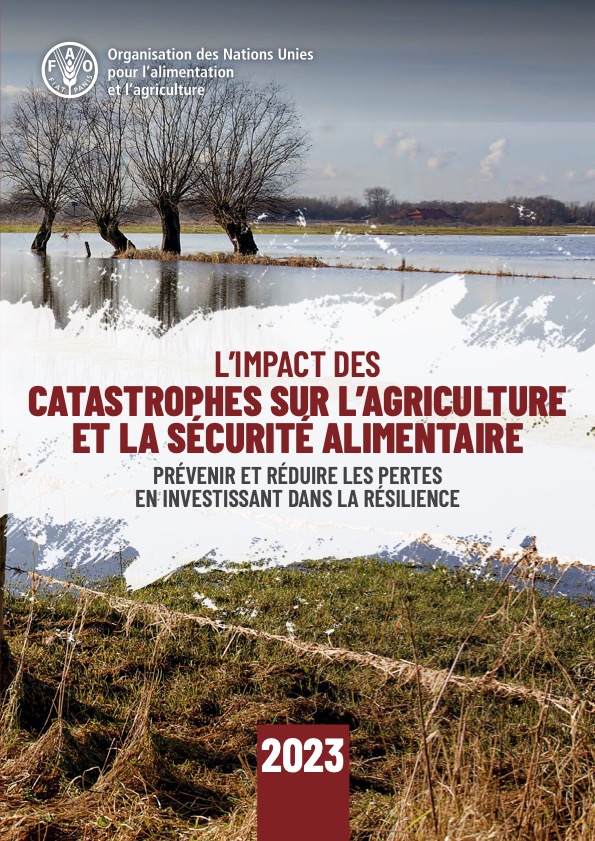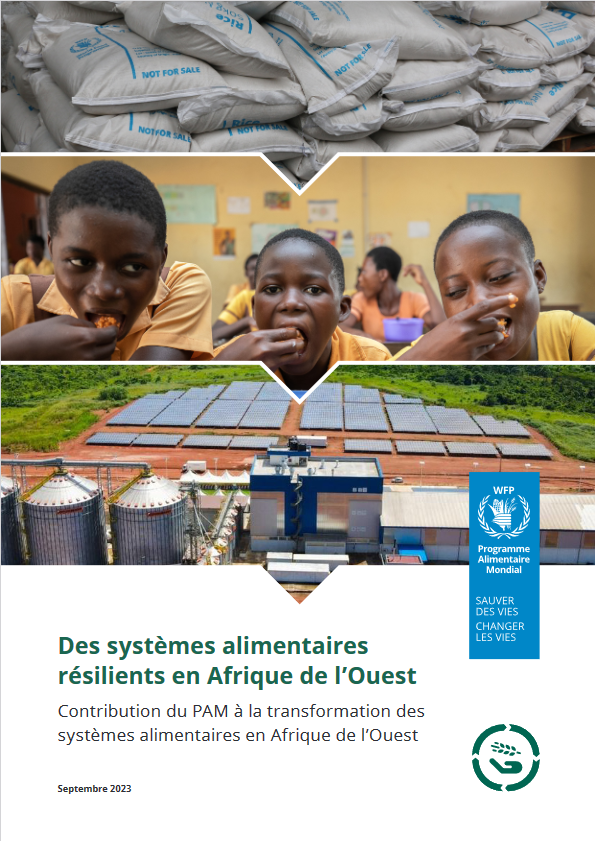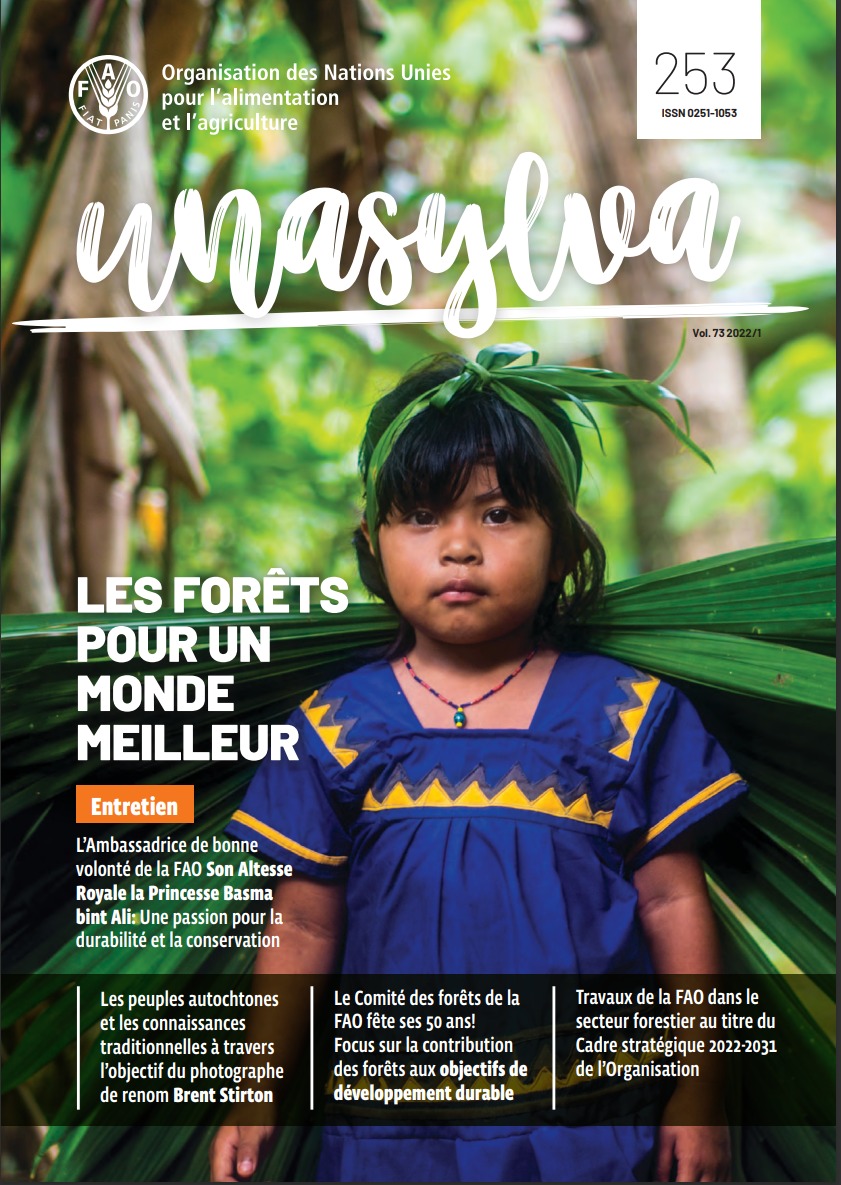
Page updated on 22 April 2024
The F&G are a regional framework and a widely acknowledged tool to improve land governance in African countries. Endorsed in 2009, the F&G are a collaborative effort of the African Union Commission, the UN Economic Commission for Africa, and the African Development Bank. As part of the Land Policy Initiative, F&G aims to promote socio-economic development and peace and security in Africa by providing tools and recommendations for land policy development and implementation.
Purpose
The Framework and Guidelines for Land Policy in Africa (F&G) recognizes the pivotal role land plays in sustainable development and peace and security in Africa. Drawing attention to the historical, political, and socioeconomic context of land governance, F&G highlights the complexity of land tenure in Africa, which is often contested. Furthermore, the F&G emphasizes the need to address emerging issues and anticipate future trends, especially in the context of climate change.
The F&G consists of seven chapters. Starting out with the justification for and the development of the F&G in chapter one, the following two chapters analyze the land question in Africa and highlight the role of land in the continent’s development process. Chapter 4 outlines key operational processes for governments to develop comprehensive policies while the challenges likely to be met are highlighted in chapter 5. This is followed by recommendations of how to track progress in chapter 6 and a concluding statement of how AU member countries might want to use the F&G in chapter 7.
Based in the F&G, African governments are invited to develop appropriate land administration systems and comprehensive national land policies which take critical (postcolonial) issues and current challenges into consideration. The AU Declaration on Land Issues and Challenges urges Member States to do so in an inclusive and participatory process and to ensure effective land reforms. Showcasing experiences from across the continent, F&G shares lessons learned and best practices for the process of land policy implementation. It also provides government recommendations for adequate budgeting, tracking progress, and monitoring. The F&G promotes shared principles on securing access to land for all users and suggests benchmarks for the performance of land governance institutions. It also encourages more coherent partnerships between states, citizens, and development partners and supports cross-national and regional convergence.
Stakeholders
The Framework and Guidelines on Land Policy in Africa are a result of a three-year consultative and collaborative process which started with the Land Policy Initiative in 2006. This process involved African continental and regional institutions, governments, experts, and development partners. The implementation of the F&G through the Land Policy Initiative lies with a tripartite consortium, including the African Union Commission (AUC), the United Nations Economic Commission for Africa (ECA), and the African Development Bank (AfDB). While the AUC provides overall leadership of the Initiative, ECA and AfDB provide technical support for land policy development and implementation and facilitate effective partnerships and resource mobilization. In addition, GLTN was one of the core partners in the formulation process and helped integrate rural and urban issues.[1]
The European Union and the Swiss Agency for Development and Cooperation are the major donors funding the implementation of the F&G and VGGT through the EU Land Governance Programme (EULGP). The EULGP has established country partnerships with a strong emphasis on cross-country learning and exchange, and aims to mainstreaming and promoting the VGGT and F&G at the pan-African level, notably through the New Partnership for Africa’s Development (NEPAD) and the Comprehensive Africa Agricultural Development Programme (CAADP).
History of the F&G
In 2006, the Land Policy Initiative (LPI) started analyzing land policy shortcomings and challenges in Africa with the intention of developing a framework that strengthens land tenure and improves livelihoods. In this very context the African Union adopted the Declaration on Land Issues and Challenges in 2009 along with several key policy instruments and guidelines, including the Framework and Guidelines on Land Policy in Africa (F&G). Together these are part of the African Union’s agenda on land which aims to improve land governance across the continent to foster growth, poverty alleviation, and sustainable development.[2]
The F&G were jointly developed by the African Union, African Development Bank, and the UN Economic Commission for Africa aiming at strengthening land rights, improving agricultural productivity, and securing livelihoods across the continent. In so doing, the AU Declaration invites member countries to mainstream land governance issues in respective frameworks, policies, and protocols, and to convene platforms for disseminating knowledge and sharing best practices.
In 2017, the African Land Policy Centre was established taking over from the Land Policy Initiative. The ALPC provides leadership, coordination, builds partnerships, and promotes policy advocacy in AU’s member states.[3] It organizes the biannual Conference on Land Policy in Africa (CLPA) which brings together a wide range of experts and practitioners working on land policy development or land reform.
Connection with global land policies
Predating FAO’s Voluntary Guidelines on the Responsible Governance of Tenure of Land, Fisheries and Forests (VGGT) which were endorsed by the Committee on World Food Security (CFS) in 2012, the F&G have received less attention. Despite differences in their formulation and validation process[1], the F&G hold much in common with the VGGT as both emphasize an inclusive, participatory, and multi-sector approach to land governance. Moreover, the F&G and VGGT identify a range of key issues that need to be addresses in national land policies and offer a methodology for improving land governance. They share several areas of common ground, i.e. both acknowledge the historical injustice from colonial rule, threats of the global land rush, and the issue of patriarchy in land relations[1] , but remain distinct in scope and status.
In Africa, LPI and FAO agreed to promoting the joint application of the F&G and VGGT in a Memorandum of Understanding in 2014 to support the implementation of the AU Declaration.[2] In so doing, Capitalization meetings are held twice a year bringing together implementing countries to exchange knowledge, identify best practices, and ensure synergies.[3] The Strategic Framework for Integrated Application of the VGGT and the African Union Framework & Guidelines on Land Policy in Africa lays out guiding principles.
In response to the rising interest in land in African countries, the Guiding Principles on Large-scale Land-based Investment (AU GPs) were developed and adopted in 2014. The AU GPs draw from the F&G and VGGT and outline responsibilities of states regarding responsible land investments.

Implementation and monitoring
Initially, twelve priority countries were identified for joint implementation of the VGGT and F&G at transversal level with focus on capacity development, knowledge sharing, and support in setting up monitoring and evaluation systems: Angola, Burundi, Côte d’Ivoire, Democratic Republic of Congo, Ethiopia, Kenya, Malawi, Niger, Somalia, South Sudan, Swaziland, and Zambia. In 2017, the program was extended to Cameroon (focus on forestry), Ghana (focus on fisheries), Guinea Bissau, Sudan, and Uganda.[2] Lessons learned from each country are taken up to the pan-African level.[3] The country programs are at different stages of implementation with varying priorities. The ALPC established a monitoring and evaluation system on land governance and compliance.
There are five key lessons drawn for successful and effective implementation of the F&G. First, it needs sustained commitment and high-level leadership to support, coordinate, and monitor the process, i.e. by the establishment of a special task force under the President. Second, adequate resource allocation is a prerequisite to ensure evidence-based research and for multi-stakeholder consultations. Third, although led by the government, land policy development needs to include all key stakeholders from different sectors. Fourth, lessons learned show the importance of donor coordination and alignment in providing funding and technical assistance. Fifth, for creating awareness and effective implementation capacity development needs to be carried out at all levels.[4]
Building on these lessons learned, several major challenges were identified in developing land policies and implementing reforms. First, maintaining internal coherence, e.g. between customary and statutory rights, or between conservation efforts and development goals, cross-sector consistency between the forestry, fisheries, agriculture, mining, and urban sector, as well as inter-regional coherence. Challenges can also occur from gaps or contradictions in existing legal and policy frameworks. Second, lessons learned show that customary leaders tend to resist the application of the F&G and VGGT or delay new legislation, such as in the cases of Kenya, Somalia, and Malawi. Third, dealing with land reform might not
References
[1] Civil Society Platforms. 2022. Study on Land Policy in Africa. Learning lessons from the implementation process of AU Agenda on land. Final Report. URL: http://www.cicodev.org/cloud/Foncier/STUDY%20ON%20LAND%20POLICY%20IN%20AFRICA.pdf?_t=1653386292
[2] Civil Society Platforms. 2022. Study on Land Policy in Africa. Learning lessons from the implementation process of AU Agenda on land. Final Report. URL: http://www.cicodev.org/cloud/Foncier/STUDY%20ON%20LAND%20POLICY%20IN%20AFRICA.pdf?_t=1653386292
[3] Ruth Hall and Ian Scoones with Giles Henley (2016) Strengthening Land Governance: Lessons from implementing the Voluntary Guidelines. LEGEND State of the Debate Report 2016. URL: https://landportal.org/library/resources/state-debate-report-2016/strengthening-land-governance-lessons-implementing
[4] In contrast to the F&G, the VGGT underwent an inclusive negotiation process at the CFS, whereas the F&G.
[5] AUC. 2017. AU Declaration on Land Issues and Challenges: A review of progress made. Report to the Conference of the Specialized Technical Committee on Agriculture, Rural Development, Water and Environment. Link.
[6] Ravn-Christensen, C. 2020. Best practices, challenges and emerging issues on improving responsible governance of tenure. Lessons learned from the European Union Land Governance Programme. Rome, FAO. URL: https://doi.org/10.4060/cb2295en
[7] Ruth Hall and Ian Scoones with Giles Henley (2016) Strengthening Land Governance: Lessons from implementing the Voluntary Guidelines. LEGEND. URL: https://landportal.org/library/resources/state-debate-report-2016/strengthening-land-governance-lessons-implementing
[8] For more information on the selected countries see: Civil Society Platforms. 2022. Study on Land Policy in Africa. Learning lessons from the implementation process of AU Agenda on land. Final Report. URL: http://www.cicodev.org/cloud/Foncier/STUDY%20ON%20LAND%20POLICY%20IN%20AFRICA.pdf?_t=1653386292
[9] FAO. 2020. Strategic Framework for Integrated Application of the VGGT and the African Union Framework & Guidelines on Land Policy in Africa. Rome. URL: https://landportal.org/library/resources/978-92-5-132204-8/strategic-framework-integrated-application-voluntary-guidelines
[10] AUC. 2017. AU Declaration on Land Issues and Challenges: A review of progress made. Report to the Conference of the Specialized Technical Committee on Agriculture, Rural Development, Water and Environment. Link
[11] Ravn-Christensen, C. 2020. Best practices, challenges and emerging issue son improving responsible governance of tenure. Lessons learned from the European Union Land Governance Programme. Rome, FAO. URL: https://doi.org/10.4060/cb2295en
[12] Ruth Hall and Ian Scoones with Giles Henley (2016) Strengthening Land Governance: Lessons from implementing the Voluntary Guidelines. LEGEND. URL: https://landportal.org/library/resources/state-debate-report-2016/strengthening-land-governance-lessons-implementing
Library
L’Impact des catastrophes sur l’agriculture et la sécurité alimentaire 2023
Partout dans le monde, les catastrophes engendrent des destructions d’une ampleur inédite. Les bouleversements qui en découlent compromettent le fonctionnement et la viabilité de la production agricole et menacent les moyens d’existence de millions de personnes qui sont tributaires des systèmes agroalimentaires.
2023 - Systèmes alimentaires résilients en Afrique de l'Ouest - Contribution du PAM à la transformation des systèmes alimentaires en Afrique de l'Ouest
2023 - Systèmes alimentaires résilients en Afrique de l'Ouest - Contribution du PAM à la transformation des systèmes alimentaires en Afrique de l'Ouest
Ce document montre comment la structure globale du PAM pour la transformation des systèmes alimentaires est adapté au contexte de la région de l'Afrique de l'Ouest.
Les forêts pour un monde meilleur
Pour coïncider avec le 50
Organisations
LandCam
Pendant cinq ans, LandCam collaborera avec les principales parties prenantes à travers le Cameroun pour améliorer les droits coutumiers et officiels liés à la terre et aux ressources naturelles en conduisant au niveau local des initiatives innovantes pour une meilleure gouvernance foncière, et en contribuant aux réformes pratiques des politiques en la matière. Nous créerons de nouveaux espaces pour un dialogue et une réflexion mieux informés, plus efficaces et plus inclusifs, en y associant le public et les médias, ainsi que les plateformes de la société civile.
Events
Transformer l’avenir alimentaire de l’Afrique: Des changements de politiques pour des systèmes alimentaires plus sains
Joignez-vous à nous pour un webinaire perspicace et interactif afin de découvrir les expériences des équipes de recherche au sein de l’initiative Catalyser le changement pour des systèmes alimentaires sains et durables. Apprenez des spécialistes à l’échelle internationale sur la mise en œuvre de nouvelles politiques pour des systèmes alimentaires plus sains en Afrique.
Les environnements et la consommation alimentaires en Afrique évoluent rapidement. L’obésité et le surpoids augmentent maintenant à un rythme rapide, parallèlement aux problèmes existants de malnutrition. Cela s’accompagne de nombreux défis pour la santé de la population. On prévoit que d’ici 2030, les maladies non transmissibles seront la principale cause de décès sur le continent. Cela doit être abordé de manière proactive grâce à une approche pansociétale afin de créer et de maintenir des systèmes alimentaires plus sains pour tous.





